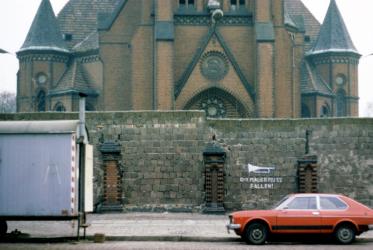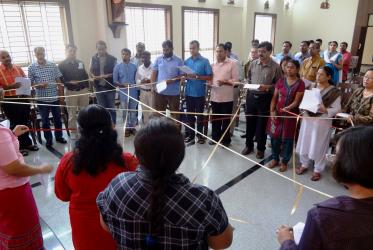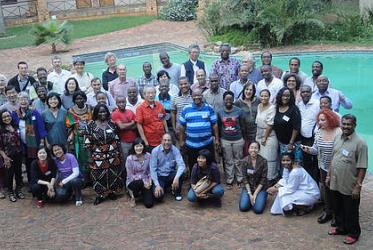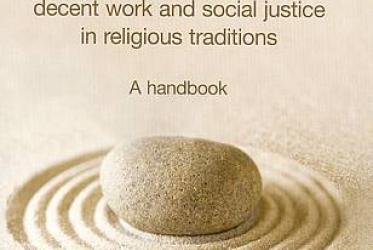Displaying 81 - 100 of 128
The Berlin Wall: looking back, looking forward
07 November 2014
WCC joins a call to protect climate refugees
24 September 2013
Indian churches reflect on the WCC assembly theme
26 August 2013
WCC calls churches to speak against corruption
20 August 2013
WCC delivers climate change statement at COP 18
07 December 2012
Ethics and human rights focus for Rio+20 summit
22 March 2012
Christian leaders “fast for fair food”
02 March 2012
Working together for social justice and decent work
23 January 2012
Just peace, prayer and a common witness keep church relevant
22 December 2011
Durban outcome is not enough, says WCC
13 December 2011
Religious voices advocate for climate justice at Durban
28 November 2011
Before Durban climate talks, Brazilian ecumenists think about Rio+20
23 November 2011













